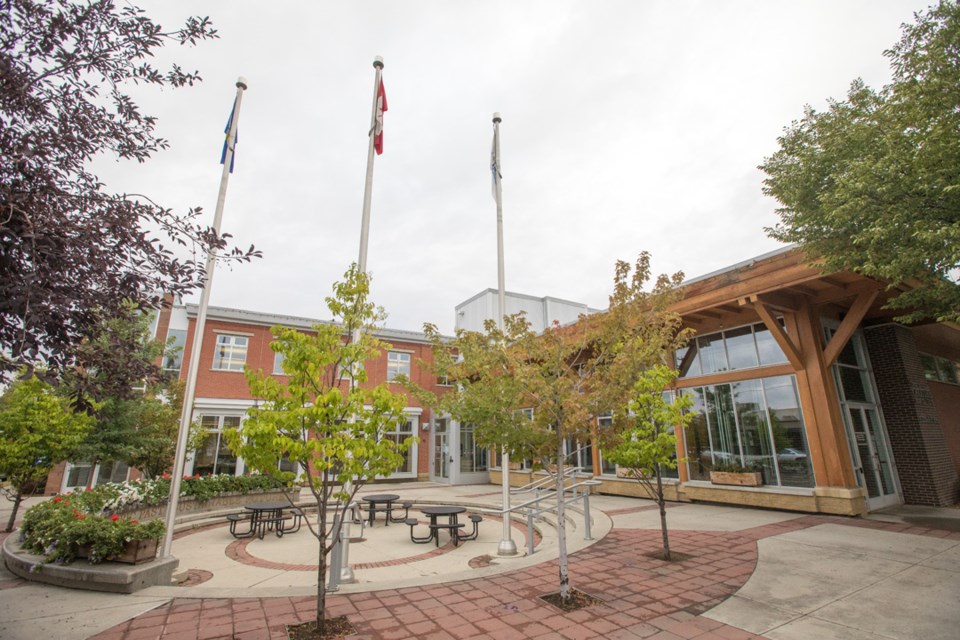Despite deliberating a three per cent municipal tax hike, Okotoks council has settled on a two per cent increase for 2020.
The increase will cost the typical homeowner an additional $3.86 per month, for a total of about $2,373 per year for a home worth approximately $450,000. This is lower than the $5.81 per month increase originally proposed in November budget discussions.
Coun. Ken Heemeryck made the motion for a two per cent increase to the municipal portion of taxes, in keeping with an expected two per cent raise to the consumer price index, although Mayor Bill Robertson had proposed dropping to 1.5 per cent.
"I think if we were to reduce, which I do agree with, I think in the past and most times I would agree with going with the consumer price index," said Heemeryck. "We're increasing our service levels with adding transit, so I think we're pretty tight as it is.
"I can understand why a deeper cut might be desired, the economy isn't great. I don't propose we have a service level decrease. I think two per cent is a good fair middle ground."Mayor Bill Robertson said he was pleased to see the tax increase reduced, even if it wasn't as low as he'd hoped to go.
He said it's important for council to keep in touch with its residents and be mindful of difficult financial times.
"We've heard food bank customers are up, there are more people going to the Okotoks Food Bank than ever before," said Robertson. "Here at the council table we're all relatively well-off in terms of not seeing how the other half lives sometimes. There are a number of people who are out of work in this town.
"If it were possible I'd move to zero for this because people are hurting, but I don't think that's possible."
A reduced tax increase was met with some concern by other councillors, as it came to light cost savings would come from delaying projects from 2020, such as playground upgrades, to future years.
"We're really not reducing in a lot of ways, we're deferring," said Coun. Tanya Thorn.
She said while people might save $1.95 per month in 2020, the costs will come back another year because eventually delayed projects need to be done and could result in higher tax hikes later.
It would be more reasonable to reduce taxes by cutting expenses rather than deferring them, she said.
"If we truly want to reduce, then we need to start talking about true service levels cuts," said Thorn. "We need to have a different conversation. It's great to say we've reduced it by one per cent, but really have we?
"Because if you live here next year you're going to pay more. Deferring projects and deferring a spend is not saving money on a budget. All you're doing is saying someone else is going to pay for it."
Coun. Florence Christophers expressed her concern that future budgets would be impacted by the lower tax increase.
"We're going to impact our capacity to have budgets that balance three or five years out," said Christophers. "I think this is great optics but not great financial responsibility on our part."
While Coun. Ed Sands was not opposed to the two per cent increase, he said he's frustrated politically with how the budget process works each year.
After setting out budget guidelines in the spring and confirming them in September, he said council should trust adminstration to develop a sound budget that meets its direction rather than making last-minute changes in December.
"It's our annual budget dance," said Sands. "We tell administration to do a three per cent budget. We ask them to create a budget with the guidelines we've asked for, they come back with a budget that meets those guidelines and trust us to accept it. Then we arbitrarily change it here."
The $62.599 million operating budget will maintain the Town's service levels with cuts made on specific line items and projects, such as playgrounds, IT equipment, and a municipal enforcement visibility program. It also includes the addition of a full year of on-demand local transit worth $700,000, and the economic development roundtable implementation plan.
There had been a total of $1 million in savings achieved through efficiencies and the cancellation of projects such as the municipal census prior to the Dec. 9 meeting.
Added to the operating budget was a one-time expense of $80,000 to remove the structural post in the visitor players' bench at Piper Arena in the Okotoks Recreation Centre due to safety concerns.
Okotoks CAO Elaine Vincent said there were some challenges developing the 2020 budget, largely due to provincial and federal government budget impacts post-election.
"We do have uncertainty," said Vincent. "We are still feeling the impacts of the elections and understanding of the budgetary impacts and factoring in the decline of funding from the Province."
She said known impacts include loss of grant revenue, the elimination of the Alberta Capital Financial Authority and the reduction and phasing out of Municipal Sustainability Initiative (MSI) funding. The funding model will be replaced with the Local Government Funding Framework, the details of which have not yet been released.
The approved $17.955 million capital budget includes upgrades to the wastewater treatment plant totalling $11.72 million in 2020, as well as $1.5 million for a solar community generation and $1.01 million for the Okotoks community campus. The $275,000 Northridge Drive off-leash dog park was removed from the capital budget.
"I think this is premature currently and we have opportunities on the south side that are going to come forward in the next year or two, so I think this is a prudent approach to this project," said Thorn.
The commercial tax rate will remain at 150 per cent of the residential tax amount.



